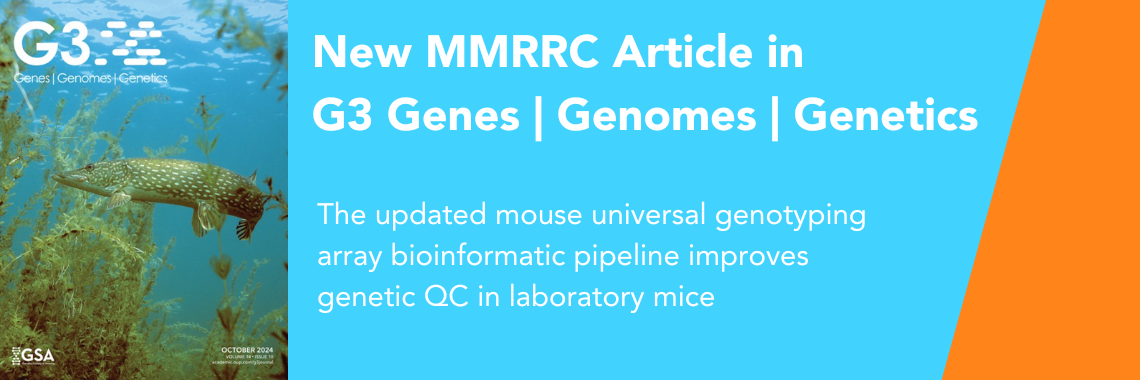MiniMUGA Genotyping Tool Updated to Improve Accuracy in Mouse Research
Posted on January 27, 2025

The MiniMUGA genotyping array, a vital tool for genetic quality control in laboratory mice, has been updated to improve its performance. Used in over 40,000 genotyping tests, MiniMUGA helps research programs like the Collaborative Cross (CC) and the Mutant Mouse Resource and Research Centers (MMRRC). The latest updates fix previous limitations and enhance the accuracy of genetic analysis by improving marker annotation, consensus genotypes, and the informatics pipeline.
These updates address key limitations in the original analysis pipeline, increasing the reliability of marker annotation and improving the consensus genotypes for a broader set of inbred strains. Using over 8,500 new samples, the revised pipeline enhances the identification and quantification of specific genetic backgrounds and includes important features such as chromosomal sex determination and construct detection.
Key Improvements
- Enhanced Marker Annotation: The performance of over 10,800 SNP markers has been re-assessed, leading to better clustering and more accurate genotype calls, reducing errors in background identification and inbreeding estimates.
- Expanded Detection Capabilities: MiniMUGA now detects two additional genetic constructs, the cHS4 insulator, and the Flippase (Flp) construct, commonly used in laboratory mouse models.
- Updated Informatics Pipeline: Significant changes to the analysis pipeline include removing arbitrary thresholds, expanding background determination, and incorporating the Y chromosome and mitochondrial genome into the genetic ideogram, providing a more comprehensive report.
- Improved Consensus Genotypes: The number of inbred strains with consensus genotypes has expanded to 242, with greater representation of biological replicates, ensuring higher accuracy in detecting substrain-specific diagnostic SNPs.
- User-Friendly Reports: The updated layout simplifies data interpretation. It features a new section summarizing genetic background in table format and a clearer, more comprehensive ideogram that visualizes each sample’s genomic makeup.
These updates to the MiniMUGA genotyping array are expected to benefit a wide range of mouse research applications. The improved rigor and reproducibility in genetic analysis will contribute to more reliable research outcomes in genetics, disease mechanisms, and therapeutic development. MiniMUGA’s ability to provide detailed genetic backgrounds and substrain-specific diagnostics makes it a valuable tool for maintaining the integrity of laboratory mouse colonies and supporting global research.
For more information, visit the unlocked article here.